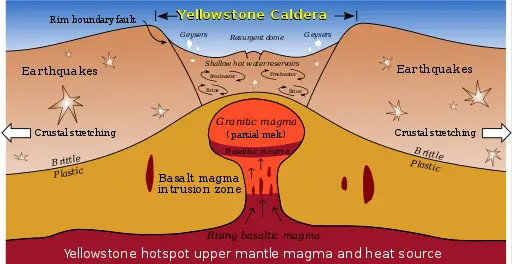There haven’t been any super volcano eruptions in recent history.
The most recent super eruption is estimated to have occurred around 26,500 years ago at Taupō Volcano in New Zealand.
These eruptions are incredibly rare, occurring on geological timescales, meaning thousands or even millions of years apart. Scientists are constantly monitoring known super volcanoes, like Yellowstone, but there’s no need for immediate concern about a super eruption.
A super volcano is a volcano that has had an eruption with a Volcanic Explosivity Index (VEI) of 8, the largest recorded value on the index. This means the volume of deposits for such an eruption is greater than 1,000 cubic kilometers (240 cubic miles).
Super volcanoes are rare, with only a handful known to exist on Earth. Some of the well-known super volcanoes include Yellowstone in the United States, Toba in Indonesia, and Taupō in New Zealand.
When a supervolcano erupts, it can have a devastating impact on the surrounding area. The eruption can eject a massive amount of ash and debris into the atmosphere, which can block out the sun and cause global cooling. The eruption can also trigger lahars, which are mudflows that can travel long distances and destroy everything in their path.
Supe volcanoes are a powerful force of nature, but they are also a reminder of the incredible power of the Earth.
Image credit
Kbh3rd, Public domain, via Wikimedia Commons


